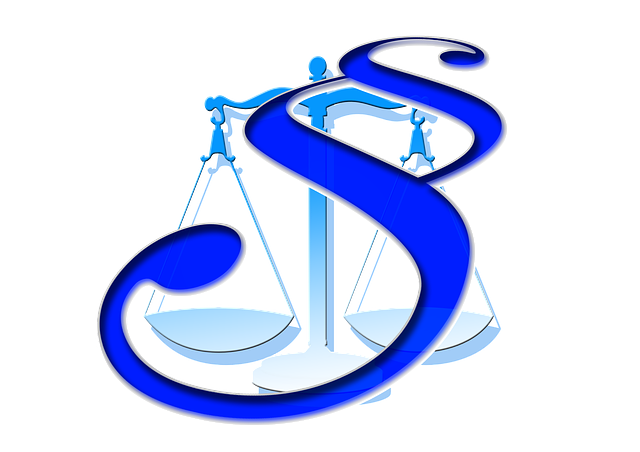The healthcare industry's complex regulatory landscape and high-value transactions make it vulnerable to securities scams. Effective dispute resolution requires proactive compliance measures like due diligence, audits, and legal counsel. Jury trials highlight the need for robust risk management and ethical practices to protect investors and maintain public trust. Structured dispute resolution processes mitigate risks, deter fraud, and foster trust through swift issue identification and rectification. Compliance with regulations like HIPAA and FCA is crucial to avoid legal issues and penalties, while advanced tools enhance transparency and facilitate early detection of securities scams.
In the dynamic landscape of healthcare, investors face unique challenges from securities scams. This article unravels common schemes plaguing the industry, highlighting crucial aspects of regulatory compliance and dispute resolution as powerful tools in fraud prevention. We delve into the legal labyrinths governing the healthcare sector, offering insights on navigating industry-specific regulations for enhanced transparency. By exploring cutting-edge compliance strategies, readers gain essential knowledge to safeguard investments and foster ethical practices within the dynamic healthcare industry.
- Unveiling Common Securities Scams in Healthcare
- Regulatory Compliance: Protecting Investors in Medicine
- The Role of Dispute Resolution in Fraud Prevention
- Navigating Legal Labyrinths: Industry-Specific Regulations
- Enhancing Transparency: Tools for Effective Compliance
Unveiling Common Securities Scams in Healthcare

The healthcare industry is a target-rich environment for securities scams due to its complex regulatory landscape and high-value transactions. Scammers exploit vulnerabilities in compliance systems, preying on investors with promises of lucrative returns or innovative medical solutions that never materialize. Common schemes include misrepresentations about clinical trial data, off-label marketing, and the sale of unapproved drugs or devices. These deceptions often involve intricate networks of fraudulent companies and individuals, making them challenging to uncover.
Effective dispute resolution in healthcare requires a proactive approach. Corporate and individual clients must stay vigilant, thoroughly verifying investment opportunities and seeking legal counsel when doubts arise. Proactive compliance measures, such as enhanced due diligence and internal audits, can help avoid indictment in cases of fraud. While jury trials may seem like a distant concern for many, they underscore the importance of robust risk management strategies and ethical practices throughout the industry to protect investors and ensure public trust.
Regulatory Compliance: Protecting Investors in Medicine

In the highly regulated healthcare industry, compliance is paramount to protect investors and patients alike. Regulatory bodies play a critical role in ensuring that medical practices, research institutions, and pharmaceutical companies adhere to stringent standards set forth by law. These regulations cover various aspects, from clinical trials and drug development to billing practices and patient data privacy. Non-compliance can lead to severe consequences, including legal repercussions and damage to reputations, especially in high-stakes cases involving complex medical procedures or experimental treatments.
Effective compliance programs within the healthcare industry facilitate dispute resolution by establishing clear guidelines and protocols. This proactive approach helps mitigate risks and prepares organizations to navigate potential regulatory audits, investigations, and litigation with confidence. Moreover, having robust internal controls and a dedicated team for general criminal defense can significantly enhance winning challenging defense verdicts in court. Such measures ensure that the healthcare sector operates transparently, ethically, and in line with legal expectations, ultimately safeguarding patients’ interests and maintaining public trust.
The Role of Dispute Resolution in Fraud Prevention

In the ever-evolving landscape of financial markets, especially within the healthcare industry, where regulatory compliance is paramount, dispute resolution plays a pivotal role in fraud prevention. As white-collar and economic crimes become increasingly sophisticated, effective dispute resolution mechanisms are essential to achieving extraordinary results in holding wrongdoers accountable. By facilitating the peaceful resolution of disputes, these processes not only mitigate potential financial losses but also deter future fraudulent activities, fostering an environment of trust and integrity within the industry.
The integration of robust dispute resolution practices enhances compliance efforts by providing a structured framework for addressing discrepancies and suspected frauds. This proactive approach allows for the swift identification and rectification of issues, preventing them from escalating into larger-scale scams. Moreover, it empowers regulatory bodies and affected parties to collaborate, sharing insights and best practices that can strengthen defenses against emerging scams, thereby safeguarding the integrity of the healthcare industry’s financial transactions.
Navigating Legal Labyrinths: Industry-Specific Regulations

Navigating legal labyrinths is a crucial aspect of securing investments in any industry, but especially so in the highly regulated healthcare sector. Compliance with stringent rules and guidelines is not just an option—it’s essential to avoid indictment and potential penalties that can cripple respective businesses. The healthcare industry, for instance, is subject to laws like HIPAA, which protects patient data, and FCA regulations governing securities fraud. Understanding these legal frameworks is vital for investors and business owners alike.
Effective dispute resolution strategies are also a key component of navigating this complex landscape. With securities scams becoming increasingly sophisticated across the country, knowing how to respond to violations can be the difference between survival and catastrophe. While each case has unique circumstances, proactive measures such as regular audits, transparent practices, and staying informed about industry-specific regulations can significantly lower the risk of legal entanglements.
Enhancing Transparency: Tools for Effective Compliance

In today’s digital era, enhancing transparency has become a cornerstone for ensuring integrity within the healthcare industry. Advanced tools and technologies play a pivotal role in facilitating effective compliance, thereby mitigating risks and securities scams that have plagued high-stakes cases. By leveraging robust data analytics, artificial intelligence, and sophisticated investigative techniques, entities across the sector can navigate complex regulatory landscapes with greater clarity.
This transparency not only enables efficient dispute resolution but also empowers stakeholders to identify potential red flags at all stages of the investigative and enforcement process. As a result, achieving extraordinary results becomes more attainable. Through proactive measures and cutting-edge compliance strategies, the healthcare industry is transforming, fostering an environment where ethical practices thrive and securities scams are exposed for what they are – outliers that do not represent the standard operating procedures of a robust and responsible sector.
In conclusion, understanding and mitigating securities scams within the healthcare industry is paramount. By unmasking common scams, upholding regulatory compliance, and leveraging dispute resolution, we can fortify investor protection. Navigating the intricate legal landscape demands specific regulations tailored to medicine’s unique challenges. Ultimately, enhancing transparency through robust tools empowers stakeholders to make informed decisions, fostering a safer and more trustworthy Healthcare Industry Compliance environment.






